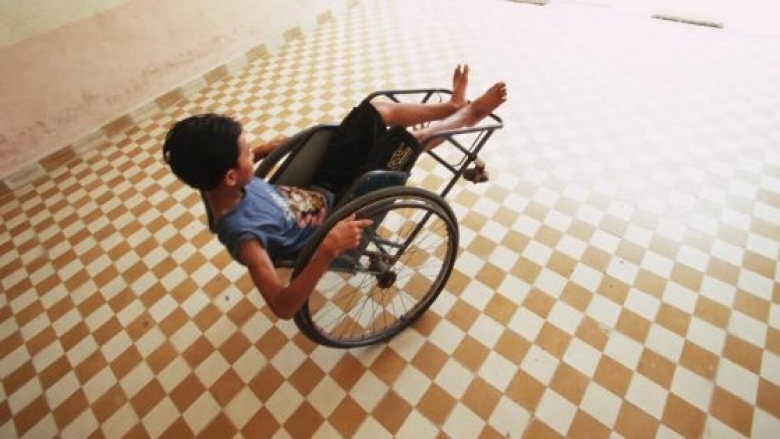Do you wear glasses? Take them off for a moment. You are now a person with a disability, according to international definitions. Organizations that defend the rights of persons with disabilities go even further, claiming that we have all had or will have some disability during our lifetimes.
This vision is crucial when promoting the rights of individuals who for different reasons cannot interact with the environment in the same way we can. For example, the wheelchair ramp on the curb is also useful for the elderly man suffering from arthritis and for the mother pushing a baby carriage.
Access should also be facilitated in other areas, such as employment, education and political participation, among others, according to the United Nations, which has devoted this year’s International Day of Persons with Disabilities to inclusion.
The inclusion of people living with disabilities is not only a question of rights, but is also increasingly considered in the design of strategies to fight poverty, particularly in developing countries.
“Persons with disabilities are more likely to experience adverse socioeconomic outcomes, such as a lower level of educational attainment, worse health conditions, high levels of unemployment and higher poverty rates than the rest of the population,” according to the World Report on Disability, published by the World Bank and the World Health Organization.
In Latin America, disability data collection methods and definitions vary across countries. The different agencies devoted to the issue estimate that there are between 50 and 85 million people living with some level of disability in the region.
Awareness and laws
Organizations that defend the rights of persons with disabilities fully support the United Nations Convention on this subject, which was adopted in 2006 and which several countries have ratified.
While in the process of ratifying the Convention, these countries developed specific disability laws. The challenge, however, continues to be the implementation of those laws, particularly in Latin America.
“It is not enough for a company to hire a blind person to sit at a desk in the office doing nothing just to abide by the law,” said Luis Vicente González, a blind secondary school teacher in Loja, Ecuador and a defender of the rights of persons with visual disabilities in that country.
Ecuadorian law, for example, establishes that 4% of public and private employees should be persons with disabilities, which is relatively easy to implement in large companies, government agencies and cities, but poses greater challenges for small firms or in rural areas.
The ONCE Foundation for Latin America (FOAL), a chapter of the National Organization of Blind People of Spain, acknowledges the legal advances made but claims that in our region, school enrolment rates among persons with disabilities is as low as 20% and that the situation is worse for specific groups, such as women or indigenous persons with disabilities.
“Implementation (of laws) is inadequate. The commitment of public officials is needed to enforce them,” said Javier Güemes, FOAL secretary on a recent visit to Washington.
Cities and data
To achieve the inclusion of disabled individuals in society, the United Nations has three priorities:
- Make cities inclusive and accessible for all
- Improve disability data and statistics
- Include persons with invisible disabilities in society and development
It is estimated that by 2050, 66% of the world’s population will be living in cities, which means that urban planning must take into account the needs of persons with disabilities.
The World Bank and other development organizations are already incorporating the theme of disability in their projects associated with health, education, social protection and fragility, conflict and violence.
Clearly, this is an effort that we all need to make –and pay for—because as mentioned, we all had or will have disabilities at some point.

